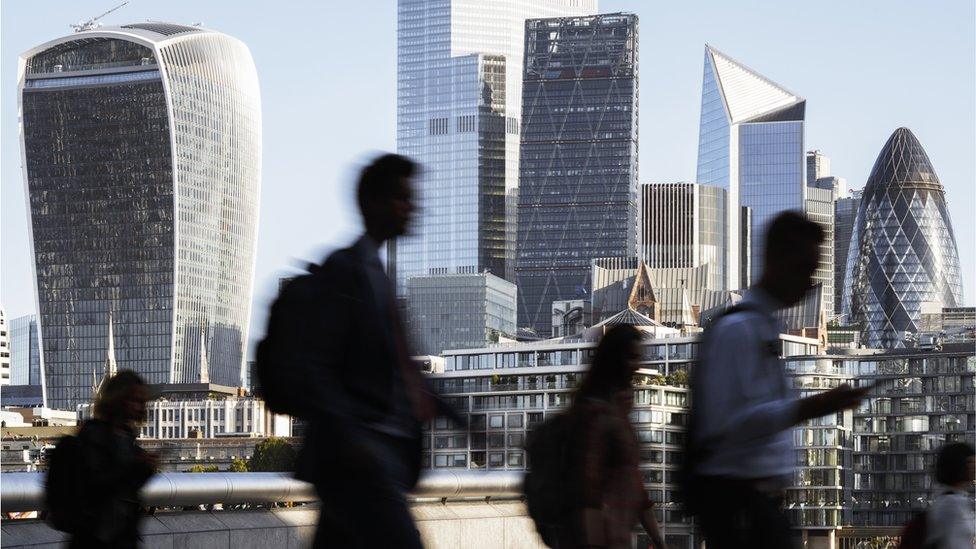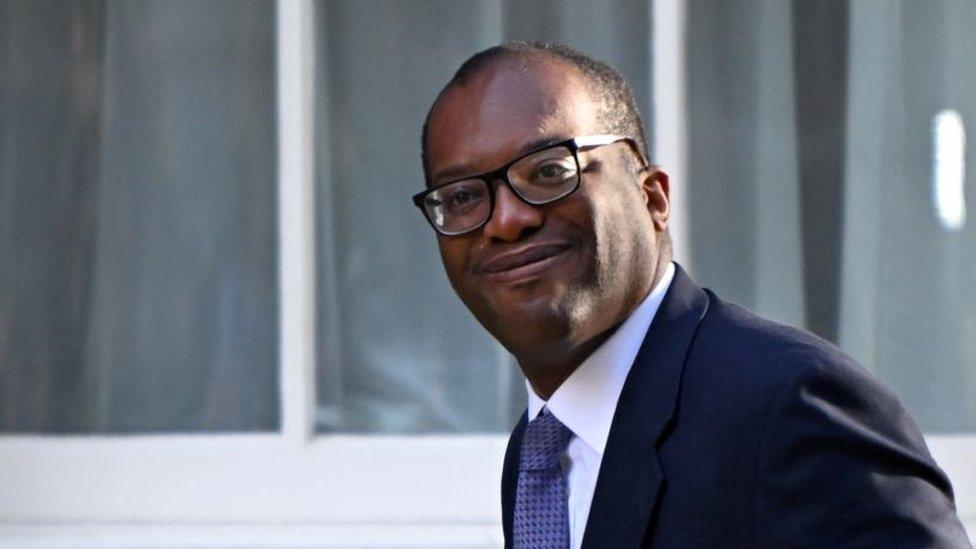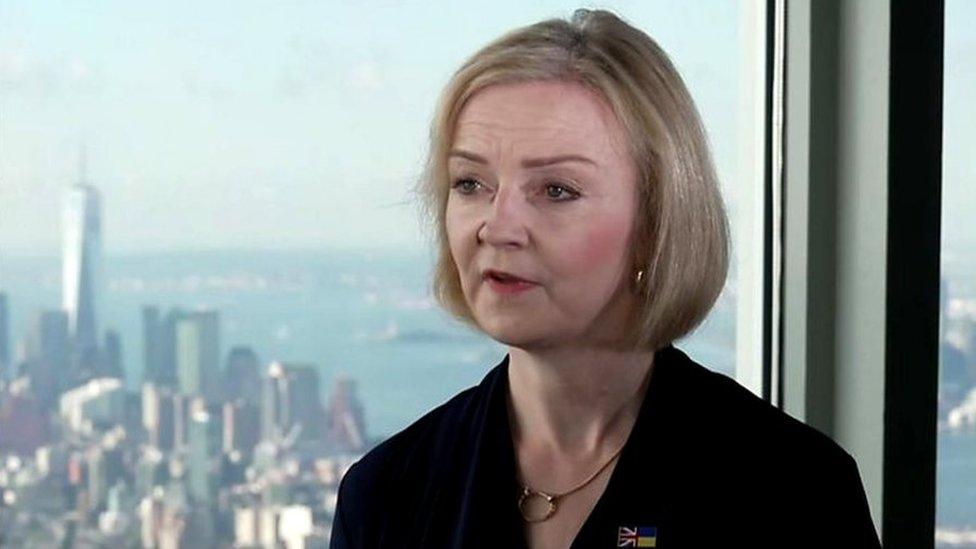Cap on bankers' bonuses will still be lifted
- Published

A plan to remove a cap on bankers' bonuses is one of the few mini-budget policies to remain after most measures were unwound by the new chancellor.
Jeremy Hunt made no mention of a U-turn on removing the cap on banker's bonuses as he reversed many of his predecessor's other policies on Monday.
Kwasi Kwarteng said last month the cap would be lifted, as part of a shake-up of rules governing the City of London.
A Treasury source told the BBC the plan to remove the cap was going ahead.
It is understood the Prudential Regulation Authority (PRA) will hold a consultation on the plans later this year.
Critics argued the move benefited wealthy people at a time when many households were struggling with living costs.
But Mr Hunt did not mention any reversal of the policy, which was designed to boost growth through a post-Brexit shake-up of the rules covering the financial sector.
Labour MP Siobhain McDonagh asked the chancellor following his emergency statement in the House of Commons why he decided to carry on "boosting bankers' bonuses in the heart of a cost-of-living crisis".
Mr Hunt said the previous policy didn't work and argued the government would get more tax from rich bankers by removing the cap.
City bosses have long complained about the EU-wide bonus rules which cap bonuses at twice an employee's salary, arguing they lead to higher base pay that pushes up banks' fixed costs.
Unlike bonuses, those costs cannot be adjusted in line with the firm's financial performance, they add, making the UK a less attractive place to locate their business than the US or Asia.
However, critics have argued that uncapped bonuses lead to the kind of excessive risk-taking that led to the financial crisis of 2008.
On Friday, the Trades Union Congress (TUC) said City bonuses had increased at more than twice the speed of wages since the 2008 financial crash.
The union body said its analysis found bonuses in the finance and insurance sector were now worth, on average, around £20,000 a year - their highest level on record.
"Everyone who works for a living deserves to earn a decent living, but ministers are holding down the pay of millions of key workers, while lining the pockets of City financiers," said Frances O'Grady, the TUC's general secretary.
The TUC called on the government to boost the minimum wage to £15 an hour. The minimum wage, which is known officially as the National Living Wage is currently £9.50 an hour for over-23s.
Andrew Sentance, a former member of the Bank of England's rate-setting Monetary Policy Committee, has previously told the BBC that the move sends a "rather confused signal when people are being squeezed in terms of the cost of living, and the government is trying to encourage pay restraint in the public sector".
The Labour Party has previously said the government's decision to lift the cap was "bizarre" and will "do nothing to support growth".
Labour Shadow Chancellor Rachel Reeves said in the House of Commons on Monday that "ordinary working people" were paying the price for the recent market turmoil describing it as a "Tory crisis made in Downing Street".
"All that is left after these humiliating u-turns are higher mortgages for working people, and higher bonuses for bankers," she said.
Related topics
- Published15 September 2022

- Published20 September 2022
